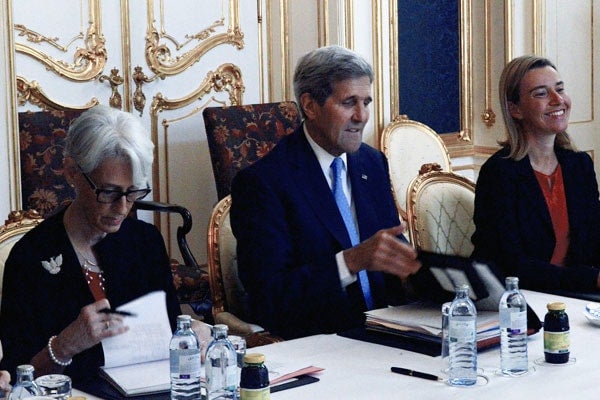
Nuclear arms and Iran: U of T expert examines the deal
Published: July 31, 2015
Sure step to stability or major mistake? The entire world, it seems, is divided on the preliminary nuclear deal reached between the Islamic Republic, the United Nations Security Council and the European Union.
Opponents argue that the provisions for limits on uranium enrichment and centrifuge research will allow Iran to develop a bomb nevertheless. United States Secretary of State John Kerry says a better deal was not possible.
U of T News spoke to Amir Hassanpour, a native of Iran and Kurdish scholar who taught modern Middle Eastern history, politics and culture in the department of Near and Middle Eastern civilizations until his retirement in 2009.
What are the implications of this deal for the world order?
The deal puts certain limits on Iran’s ability to build nuclear bombs within a specified period of time. It is difficult to predict how it will proceed. This deal is constructed in a world characterized by chronic chaos, one in which the [supposed] world powers, represented on the UN Security Council, fail to be all-powerful, while less powerful nations are able to flex muscles.
What does the United States have to gain or lose?
Under the Nixon Doctrine, the Shah of Iran was assigned the role of the U.S. gendarme in the Middle East. Under Barack Obama, Washington wants theocratic Iran to assume the same status. Thus, for the U.S., the main objective is not to deny Iran the ability to access nuclear power, though this is surely desired, but rather to form a military, political and economic front in which Iran would play a vital role in bringing order to the Middle East, North Africa, and West and Central Asia. We should not forget that India, Pakistan and Israel are U.S. allies but their nuclear stockpile has never been inspected.
What does the deal mean for the average Iranian?
Ordinary Iranians have suffered from economic hardships caused in part by the sanctions, and that is why so many support the deal. However, if the deal leads to greater political entrenchment of the theocratic regime, the will mean more repression.
How will it affect Canada?
Canada’s policy on Iran is a basically a replica of Israel’s. The deal, if implemented by both sides, will further isolate Canada not only in the region but also in Europe.
Will relations with other countries be affected?
Iran has close ties with Russia and China. If Iran cooperates with the U.S., these relations also will be affected. There are many indications that Iran needs the U.S. if it is to survive in its escalating war with members of the other front, especially Saudi Arabia, the Gulf States and ISIS.
What about the alarm expressed by Israel? Does Iran wish to make and use a nuclear bomb?
The Iranian regime considers Iranians themselves as its main enemy. Its longest war has been against women, nationalities, workers, peasants, and religious and ethnic minorities.
It is difficult to see why Iran or any other country would drop a nuclear bomb on Israel. This would eliminate both the Palestinian and Jewish peoples without discrimination. Iran and other parts of the Middle East, North Africa and Europe would not be spared. Remember that the most “responsible” nuclear power, the U.S., is the only country that has ever used the bomb.
Along with the nuclear concern, there has been criticism of Iran’s human rights abuses. Does a deal like this help or hinder efforts to spur change in an authoritarian country like Iran?
This deal cannot bring about freedom, security, rule of law, human rights or accountability. Thirty-five years of theocratic rule is long enough to appreciate why the conflict between the Islamic regime and Iranians cannot be resolved through such realignments of power blocs.
This interview has been condensed and edited for length.



